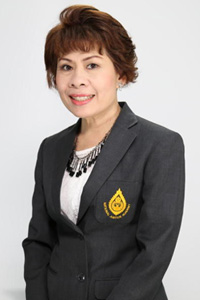
The public pins high hopes on the National Reform Council (NRC) to get the country out of a political rut, which is also the aim of junta leader and Prime Minister Gen Prayut Chan-o-cha. Yet there is no guarantee this goal will be achieved.
The 250 NRC members will receive a set of documents about 11 reform issues to prepare for their mission. The documents contain information from public hearings organised by the Reconciliation Centre for Reform and sponsored by the Office of the Permanent Secretary for Defence.
Some call it a reform blueprint. But many disagree.
At best, they comprise useful information with the pros and cons of each option which reflect opinions from various sectors including background information about the different kinds of reforms.
The NRC reform agenda covers politics, public administration, law and the judiciary, decentralisation, education, economy, energy, public health, the environment, the media, and corruption.
The reforms aim to tackle chronic and long-accumulated problems which widen economic disparity and hold the country back.
Political reform has earned the most attention, particularly the need to keep "bad" politicians from easy access to the political arena and from abusing their power without effective monitoring from the judiciary and independent organisations.
The status of the prime minister is also under scrutiny. According to a Nida poll, 77% of respondents prefer the direct election of prime ministers. This option, along with the indirect election of the premier by parliament as well as the appointment of outsiders through votes in parliament, are included in the options which will go before NRC members.
Other questions which the NRC members will have to answer include: Should it be mandatory for the PM and members of parliament to belong to political parties? Should MPs be prohibited from staying in office more than two terms; and should the PM have the power to dissolve the House?
Politicians are often viewed as corrupt and untrustworthy. This is why the NRC will pay special attention to measures that can prevent this problem recurring.
They include an election arrangement that prevents vote-buying and measures to prevent politicians from abusing their powers and making money from their positions.
Here's the timeline of the charter drafting process: The NRC will hold its first session on Oct 21. It will have to appoint a chairman of the charter drafting committee within 15 days, which is by Nov 4. It has two months to decide on the reform proposals which it will have to send to the charter drafting committee by Dec 21.
Their proposals and vote on each reform item will set the direction of the new charter.
The charter framework will become clear by April 23 next year. The charter drafting committee is scheduled to present the draft charter to the chairman on May 2 for debate and amendment by the NRC. The draft charter must be finished by Aug 16.
A month after that, which is Sept 16, the chairman of the charter drafting committee is scheduled to present the draft charter to His Majesty the King for royal endorsement. It is expected the new charter will become effective by October next year.
As for the new election date, Gen Prayut has previously said it is likely to be held three to four months after Thailand gets its new charter.
According to this timeline, we will be able to see what the charter looks like within 60 days.
The Office of the Permanent Secretary for Defence has narrowed down the reform issues for the NRC to consider to 11 volumes of documents for the 11 reform areas.
Each reform area contains three choices for the NRC to consider. These documents are tools to enable the NRC members to start from the same place.

If we allow each NRC member to air their personal beliefs, valuable time will be wasted. Due to the limited time available, it would be a good idea not to allow time-consuming free debates since the NRC members come from diverse backgrounds. The NRC should set clear guidelines for debates and voting instead of wasting time with run-on, inconclusive debates that cannot go into forming recommendations for the charter drafting committee.
The NRC should attempt to avoid the habits of past MPs in the House. Parliamentary committees have typically spent up to four to five months studying a particular issue, but their recommendations have normally been left on the shelves of the parliamentary library without being implemented.
The Office of the Permanent Secretary for Defence is obviously aware of this problem which would prevent the charter drafters meeting their deadline of October next year. In all, the NRC has only 325 days from Oct 21 to work on the reform recommendations.
Given such a short timeframe, many NRC members feel hesitant to say whether they can meet the public's high hopes. They have no choice but to do their best to move the country forward.
Nattaya Chetchotiros is Assistant News Editor, Bangkok Post.
